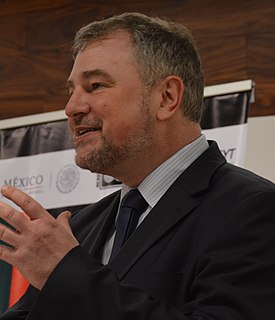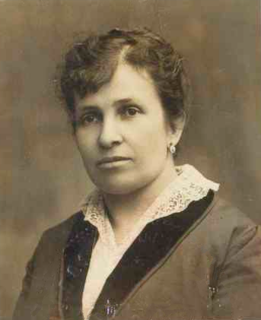Related Research Articles

The Free University of Berlin is a research university in Berlin, Germany. One of Germany's most distinguished universities, it is known for its research into the humanities, and social sciences, as well as into the natural and life sciences.
The creation of Czechoslovakia in 1918 was the culmination of the long struggle of the Czechs against their Austrian rulers and of the Slovaks against Hungarisation and their Hungarian rulers.
Norway is sometimes referred to as "The Neutral Ally". During World War I, while theoretically a neutral country, British pressure prompted the government to favour Britain highly in relation to Norway's large shipping fleet and vast fish supplies. The term was coined by Norwegian historian Olav Riste in the 1960s.

Robert Grimm was the leading Swiss Socialist politician during the first half of the 20th century.

The Berlin-Brandenburg capital region is one of the most prolific centers of higher education and research in the world. It is the largest concentration of universities and colleges in Germany. The city has four public research universities and 27 private, professional and technical colleges (Hochschulen), offering a wide range of disciplines. Access to the German university system is tuition free.
This is a summary of the events of World War one in chronological order. It has been color coded by theatres/fronts to provide a clearer understanding of what events were happening in what places during World War One.
Klaus Segbers is a German political scientist and professor for International Relations and East European Studies at Freie Universität Berlin. He is also the founder and director of the Center for Global Politics at Freie Universität Berlin, which offers four distinct graduate study programs designed for professionals and young leaders. His research interests include theories of International Relations, transformations in the former Soviet Union, international political economy, and globalization.

Robert Poole is a UK-based historian, currently Professor of History at the University of Central Lancashire, Preston. He gained his PhD from the University of Lancaster in 1986, where he was associated with Prof Harold Perkin's Centre for Social History, organising the 1996 conference of the Social History Society on 'Time and the Construction of the Past'. He has also held positions at the universities of Keele, Edge Hill and Cumbria. He has also been Leverhulme Senior Visiting Research Fellow at the University of Manchester (2000-1), an Associate of the Centre for the History of Science, Technology and Medicine, University of Manchester (2010-17), an associate of 'The Future in the Stars' research programme, Friedrich-Meinecke Institut, Freie Universität Berlin (2012-16), and visiting Senior Research Fellow to the History Group, University of Hertfordshire (2013-15).
Roger Chickering is an American historian of the German Empire and World War I. He was a professor at Georgetown University, retiring in 2010.

The First World War Centenary is the centenary of the First World War, which started on 28 July 2014 with a series of commemorations of the outbreak of the war organized across the continent of Europe and ended on 11 November 2018 with a large ceremony in Paris (France) attended by 80 heads of state and 30 heads of government.

Grzegorz Rossoliński-Liebe – is a German–Polish historian based in Berlin, associated with the Friedrich Meinecke Institute of the Free University of Berlin. He specializes in the history of the Holocaust and East-Central Europe, fascism, nationalism, the history of antisemitism, the history of the Soviet Union, and the politics of memory.

Stefan Rinke is a German historian and specialist in Latin American history. Since 2005 he has been Professor at the Institute of Latin American Studies and at the Friedrich-Meinecke-Institut at Freie Universität Berlin.

The First Battle of Monte Grappa, also known as First Battle of the Piave in Italy, was a battle fought during World War I between the armies of the Austro-Hungarian Empire and the Kingdom of Italy for control of the Monte Grappa massif, which covered the left flank of the new Italian Piave front.
Apparatus. Film, Media and Digital Cultures of Central and Eastern Europe is a bi-annual open-access academic journal with double blind peer-review. Apparatus is supported by the DFG, hosted by Freie Universität Berlin and edited by Dr Natascha Drubek. The first issue was published in September 2015. Apparatus publishes in the native languages of the region as well as in English. The editorial board includes scholars from the US, Europe and Russia.
Richard Stöss is a German political scientist and extraordinary professor at the Free University of Berlin. The focus of his research is on right-wing extremism and on political parties.
The Majority Social Democratic Party of Germany was the name officially used by the Social Democratic Party of Germany during the period 1917-1922. This differentiated it from the more left wing Independent Social Democratic Party of Germany. Nevertheless they were often simply called the SPD.
Gerhard Hirschfeld is a German historian and author. He was director of the Stuttgart-based Bibliothek für Zeitgeschichte / Library of Contemporary History, and has been a professor at the Institute of History of the University of Stuttgart since 1997. In 2016 he also became a Visiting Professor at the Institute for International Studies, University of Wuhan/China.

Alzira de Barros Mendes de Abreu e Costa was the wife of Portuguese politician Afonso Costa.
Nya Dagligt Allehanda, also known as the NDA was a Swedish conservative-leaning newspaper published in Stockholm from 1859 to 1944.
References
- ↑ New Online Encyclopedia Devoted to World War I Is Now Accessible | Freie Universität Berlin. Retrieved 20 January 2017.
- ↑ Partners | 1914-1918-Online. International Encyclopedia of the First World War (WW1). Retrieved 23 November 2016.
- ↑ Open Encyclopedia System. Retrieved 23 November 2016.
- ↑ Project Overview | 1914-1918-Online. International Encyclopedia of the First World War (WW1). Retrieved 20 January 2017.
- ↑ Contributors | 1914-1918-Online. International Encyclopedia of the First World War (WW1). Retrieved 23 November 2016.
- ↑ Editorial Advisory Board. Retrieved 23 November 2016.
- ↑ LWOOD: Annual list of Best Historical Materials selected by RUSA’s History Section. 1 February 2015 (ala.org) Retrieved 23 November 2016.
- ↑ BERLINER DIGITAL HUMANITIES PREIS 2015 VERLIEHEN. Berlin-Brandenburgische Akademie der Wissenschaften. 16 June 2015. Retrieved 20 January 2017.